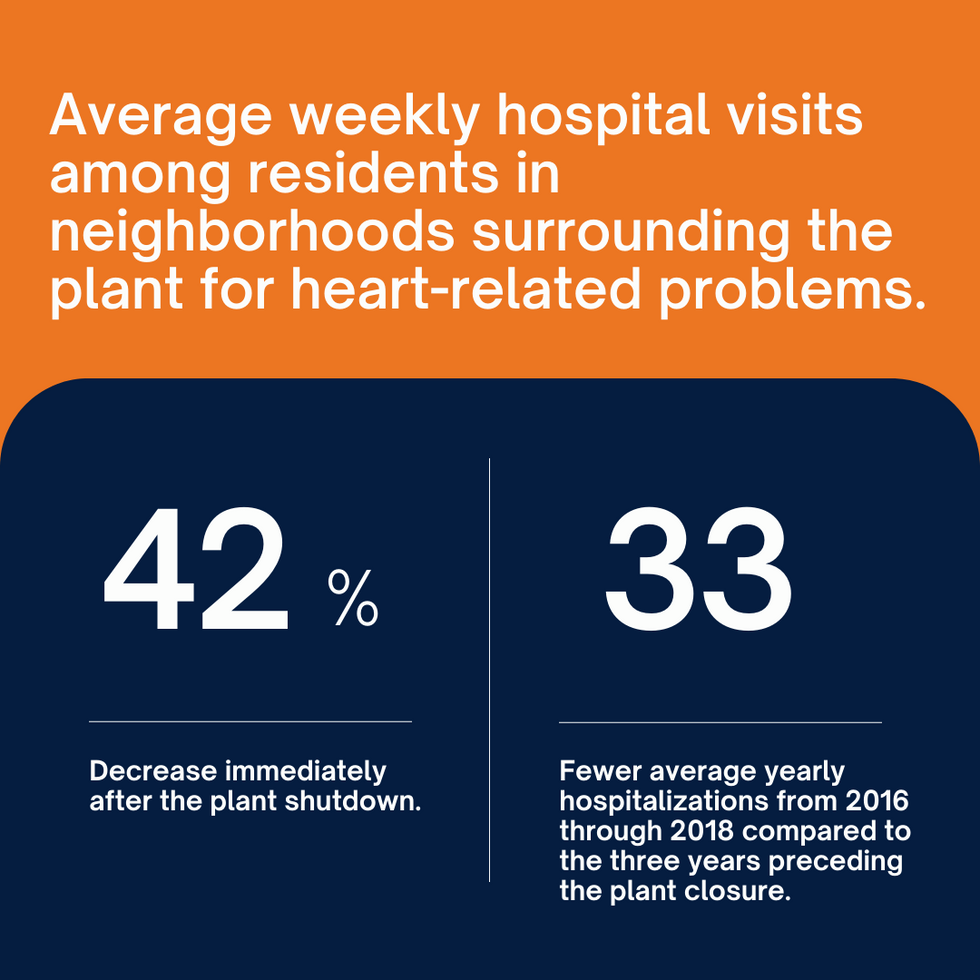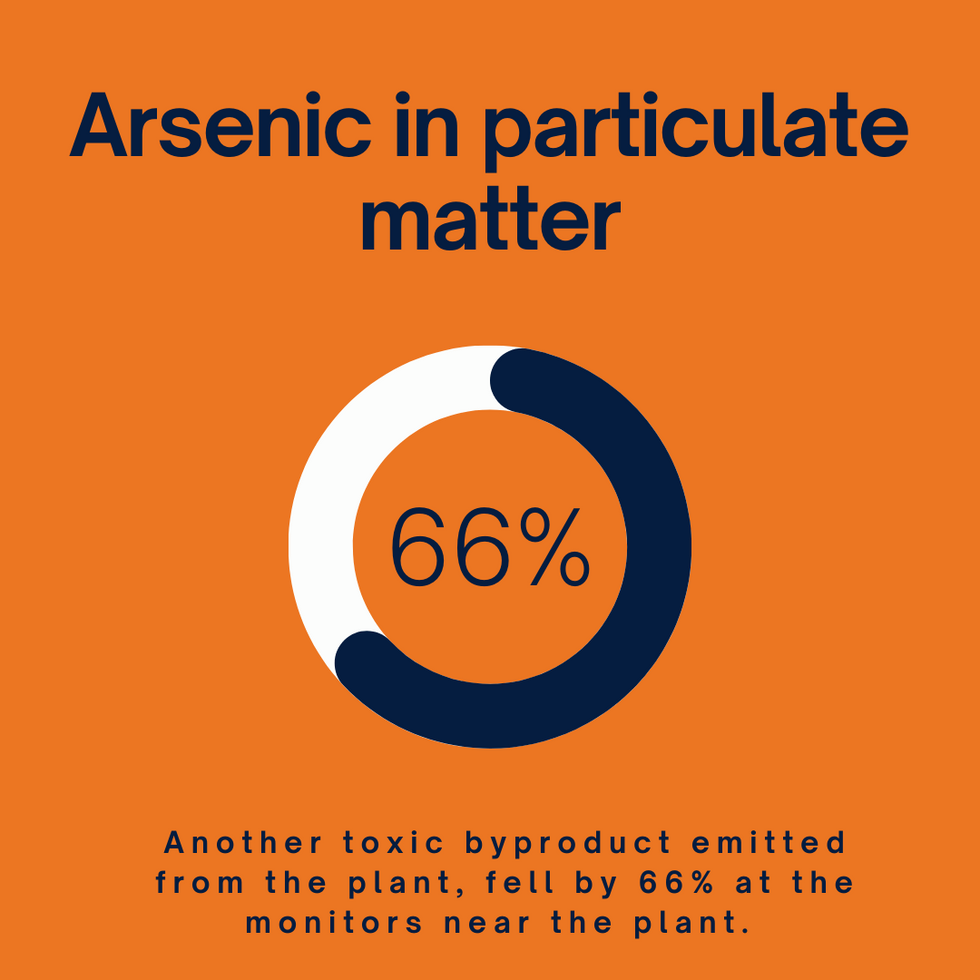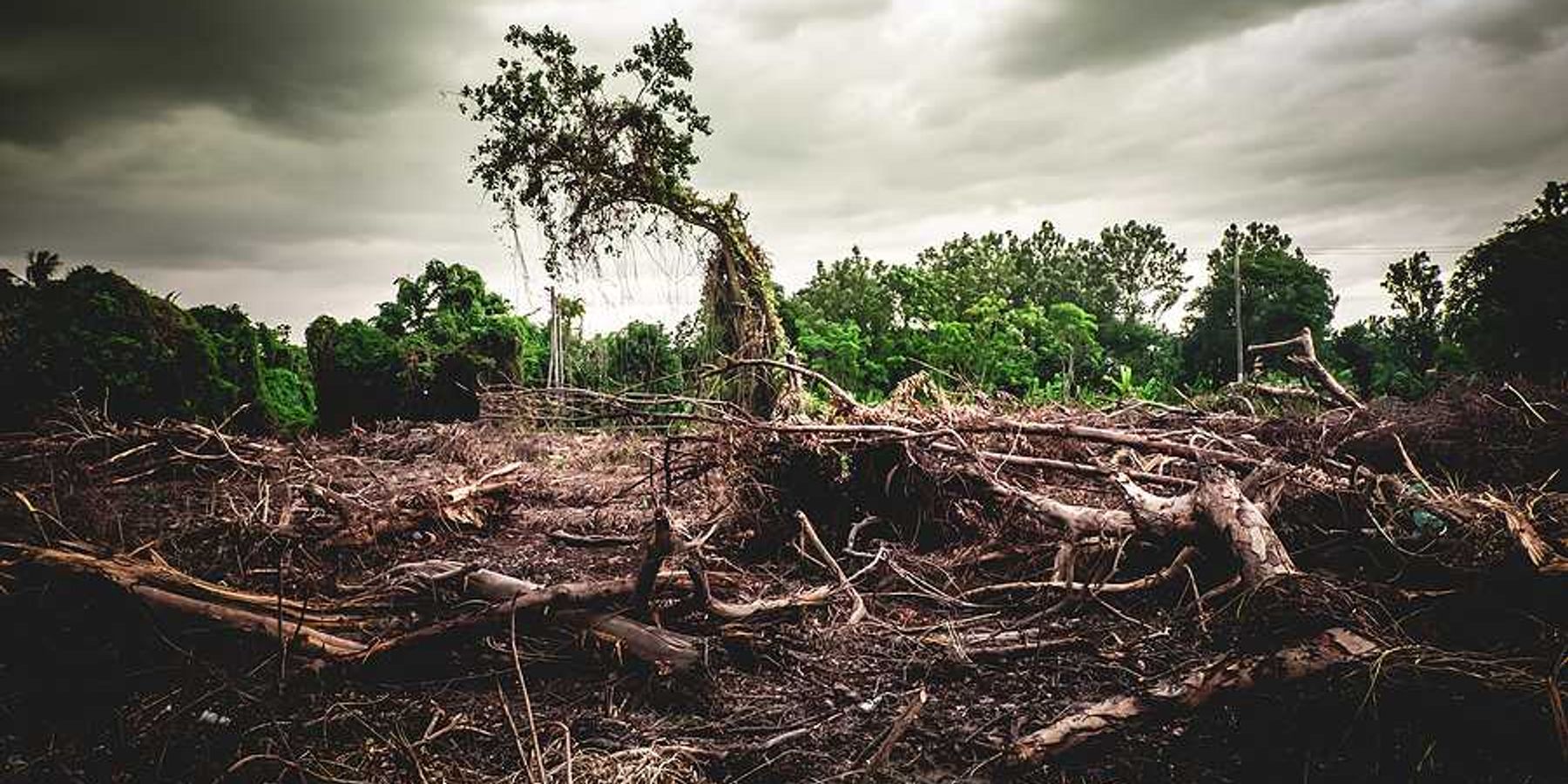
ER visits for heart problems plummeted after Pittsburgh coal processor shut down
Levels of one highly-toxic pollutant fell by 90% and ER visits for heart problems decreased by 42% immediately after the shutdown.
PITTSBURGH—The closure of one of Pittsburgh’s largest coal-processing plants in 2016 led to a lasting reduction in hazardous air pollution and a decrease in heart-related hospital visits, according to a new study.
The Shenango Coke Works, located on Pittsburgh’s Neville Island, processed coal into coke, a key ingredient in steelmaking, until its closure in January 2016. Producing coke requires heating coal to extremely high temperatures, which releases a slew of hazardous pollutants.
The study, published in Environmental Health Research and led by researchers at New York University’s Grossman School of Medicine, looked at pollutants in air monitoring data and at emergency room visits and hospitalizations for heart problems before and after the plant’s closure. The research was prompted in part by previous Environmental Health News (EHN) reporting on the plant closure, in which questions were raised by the Allegheny Health Department about links between air pollution decreases and fewer ER visits for asthma and heart problems.
“Closing this plant and eliminating its pollution really had a dramatic health benefit on the communities living nearby,” George Thurston, one of the study’s coauthors and director of the Program in Exposure Assessment and Human Health Effects at the Department of Environmental Medicine at NYU’s medical school, told EHN.
“We saw a dramatic, immediate decline in emergency room visits and hospitalizations for cardiovascular issues and then over the next several years they kept declining,” Thurston said, noting that these accumulated health benefits are similar to those seen when people quit smoking.
The study found that average weekly hospital visits among residents in neighborhoods surrounding the plant for heart-related problems decreased by 42% immediately after the shutdown. The trend continued over the next three years, with 33 fewer average yearly hospitalizations for heart disease from 2016 through 2018 compared to the three years preceding the plant closure.
The study also found that average daily levels of sulfur dioxide, a byproduct of cokemaking linked to respiratory and heart problems, fell by 90% at government air-monitoring stations near the plant and by 50% at another air-monitoring station about six miles away in Pittsburgh’s Lawrenceville neighborhood. Arsenic in particulate matter, another toxic byproduct emitted from the plant, fell by 66% at the monitors near the plant.
A lethal air pollution combination

Neville Island’s Shenango Coke Works Plant in operation before the plant’s 2016 closing.
Credit: Brian Cohen for The Heinz Endowments
Previous research by the Allegheny County Health Department, which oversees air quality in the region, found that ER visits for asthma dropped 38% and visits for heart problems decreased by 27% the year after the closure of Shenango Coke Works, but local health officials were reluctant to attribute the change to the plant shutdown.
At the time, local health officials told EHN that the changes they’d observed in particulate matter pollution after the plant’s closure weren’t substantial enough to cause such a dramatic drop in emergency room visits for asthma, based on what they’d seen in other studies. But in the last several years, a growing body of research indicates that the source and makeup of particulate matter pollution determine how toxic it is.

“Coal-related particulate matter is more toxic than other types of particulate matter pollution,” Wuyue Yu, the new study’s lead author and a doctoral science student at NYU, told EHN. “So the significant reduction of these types of particles could explain why such a small change in overall particulate matter pollution had such a dramatic effect.”
Thuston pointed to other research showing that these coal-derived pollutants are rich in transition metals and sulfur, which he referred to as a “lethal combination.”
“Sulfur itself isn’t the big problem, but it’s acidic, which makes these transition metals more bioavailable throughout the body,” he explained, pointing to a 2021 study showing that places with higher levels of transition metals and sulfur in their air had higher cardiovascular mortality rates. “Absorbing these particles in our bodies creates oxidative stress, which is linked to all kinds of health problems.”
“It’s imperative for our health that we stop burning fossil fuels”
The Pittsburgh region is still home to the largest coke-making plant in the country, U.S. Steel’s Clairton Coke Works, which is also one of the oldest operational coke plants in the country. In terms of production, the Clairton Coke Works is about ten times as large as the Shenango Coke Works was. The site lacks modern pollution controls, and the company is regularly fined for violating clean air laws at the site, but local activists say the fines are too low to incentivize change, calling it a “pay-to-pollute” model. Residents in Clairton regularly face some of the dirtiest air in the country and children at Clairton elementary school have asthma at nearly double the national rate.

In 2018, the Allegheny County Health Department said they’d observed a decrease in particulate matter pollution at air monitors near the Clairton Coke Works similar to what was seen following the closure of Shenango during the same time period, but hadn’t seen any of the same decrease in ER visits. At the time, they said this pointed to causes other than Shenango’s closure for the reduction in ER visits, so the researchers at NYU compared air pollution at monitors near the Clairton Coke Works with the pollution at monitors near Shenango, and found a significant difference in those “lethal combination” pollutants.
“At the monitors near Shenango, we saw a significant drop in sulfate, arsenic and selenium right after the closure and then consistently over the next three years,” Yu said. “At the monitors near the Clairton plant, we saw both spikes and overall higher levels of sulfate, arsenic and selenium over the same time period.”

The researchers also looked at other health effects in the years before and after the plant’s closure, including childhood asthma. They said they observed similar patterns, but those findings haven’t been published yet. The reduction in airborne arsenic, a potent carcinogen, will likely contribute to a reduction in cancer rates over time, though that data won’t be available for several decades.
“Our study adds to the evidence suggesting that when we just look at overall particulate matter levels without considering the sources and makeup of that pollution, we’re grossly underestimating the health benefits of shutting off fossil fuel pollution,” Thurston said.
“It’s imperative for our health that we stop burning fossil fuels. The climate benefits are important, though they may feel more distant, and our research clearly indicates that the health benefits are immediate and local.”
Editor’s note: This study was funded by the Heinz Endowments, which also provides funding to Environmental Health News.













